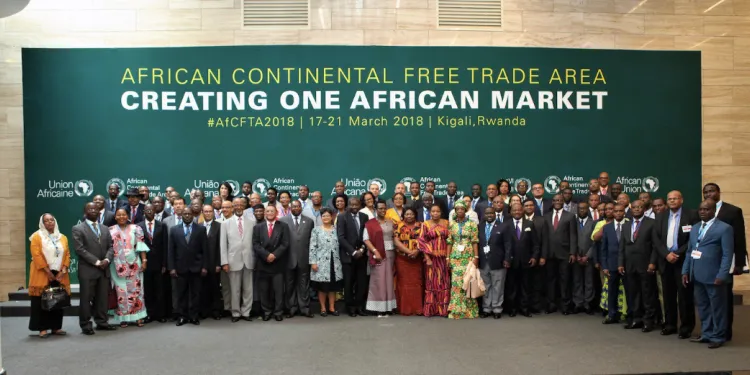The World Bank says that the African Continental Free Trade Area has the possibility to boost Africa’s income by $450 billion by 2035

A recent report from the World Bank suggests that the African Continental Free Trade Area (AfCFTA) has the possibility of boosting Africa’s regional income by 7%, translating to $450 billion, by 2035.
According to the report, tariff liberalization and a reduction in non-tariff barriers (quotas and rules of origin) would boost income by 2.4%, translating to about $153 billion. The other $292 billion, would come from trade-facilitation measures that reduce red tape, lower compliance costs for businesses engaged in trade and make it easier for African businesses to integrate into global supply chains.
In the process of boosting growth, reducing poverty, and broadening economic inclusion, the report suggests that the AfCFTA could speed up wage growth for women, and lift 30 million people out of extreme poverty if implemented fully.
Furthermore, Côte d’Ivoire and Zimbabwe where trade costs are among the region’s highest would see the biggest economic gains, with each increasing income by 14%. By AfCFTA boosting intraregional trade in manufacturing, intra-continental exports would increase by 81% while the increase to non-African countries would be 19%.
The AfCFTA is expected to lift around 68 million people out of moderate poverty and make African countries more competitive. But successful implementation will be vital, which includes careful monitoring of impacts on all workers – women and men, skilled and unskilled – across all countries and sectors, ensuring the agreement’s full benefit.
Albert Zeufack, the World Bank’s Chief Economist for Africa
Full implementation of the agreement would also spur larger wage gains for women (an increase of 10.5% by 2035) than for men (9.9%). It would also boost wages for both skilled and unskilled workers by 9.8% and 10.3%, respectively.
In the longer term, AfCFTA would provide a path for integration and growth-enhancing reforms for African countries. By replacing the patchwork of regional agreements, streamlining border procedures, and prioritizing trade reforms, AfCFTA could help African countries increase their resiliency in the face of future economic shocks.
The COVID-19 pandemic is expected to cause up to $79 billion in output losses in Africa in 2020.

